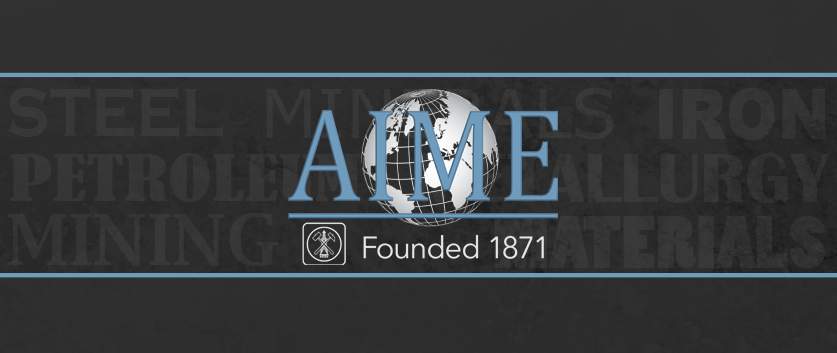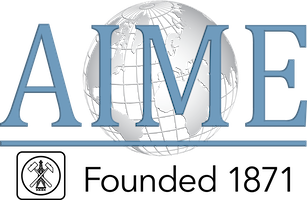
RFP - ID of Metric and Research on Trends in Corruption in Engineering/Construction
REQUEST FOR PROPOSALS (RFP)
Identification of Metrics and Research on Trends in Corruption in the
Engineering/Construction Industry, and Development of a Procedure for
Monitoring Those Trends to Assess the Effectiveness of Current Anti-Corruption
Programs in the Industry
1.0 Introduction
The American Society of Civil Engineers (ASCE) seeks proposals from individuals, firms,
and research and academic institutions to assist with the identification of metrics and
research on trends in corruption in the engineering/construction industry, and development
of a procedure for monitoring those trends to assess the effectiveness of current anticorruption
programs in the industry.
2.0 Background
Beginning in late 2004, the engineering community initiated discussions with participants
from a wide variety of organizations such as Transparency International, The World Bank,
the World Federation of Engineering Organizations, the International Federation of
Consulting Engineers, the Murdough Center for Engineering Professionalism, the National
Institute for Engineering Ethics, and professional societies from around the world on
corruption and bribery in the engineering and construction industry. All saw an immediate
need to address the problem of corruption. The Global Anti-Corruption Education &
Training (ACET) program was conceived by these organizations, and other universities, in
conjunction with global firms who are part of the World Economic Forum (WEF) and
signatories of the Partnering Against Corruption Initiative (PACI) as a tool for addressing
this significant problem.
The American Society of Civil Engineers (ASCE) initiated a Task Committee on Global
Principles for Professional Conduct (GPPC) to engage the Society in a dialogue on
corruption and bribery; raise awareness of the seriousness of the problem, and provide our
members with the necessary tools to fight corruption. The Task Committee, with input
from engineering organizations around the world, also developed the Engineer’s Charter
which has been signed by more than 200 people from more than 40 countries. The Charter
expresses a zero tolerance for bribery, fraud and corruption and requires all signatories to
address corruption control in their own society. The Task Committee has now been
designated as a standing committee under the ASCE Committee on Professional Practice.
Members of the committee and ASCE have since been heavily engaged in discussions and
anti-corruption action programs with the organizations identified above and others including
the Pan American Union of Engineering Associations (UPADI), the Pan American
Academy of Engineers, and the Asian Civil Engineering Coordinating Council.
The Global ACET Program's Educational Training package includes an educational DVD
(subtitled in 28 languages), a Training Manual, Teaching Guide, and PowerPoint
presentations for the Training Manual which will "Train the Trainer." The package is
designed to assist individuals in the engineering/construction industry around the world, as
well as students, to recognize the negative impact of corruption in the engineering
Page | 2
profession and society and to have some tools to address it when they meet it in their
practices. The Global ACET Project materials were distributed worldwide--3,000 were sent
free to groups identified by our major sponsors--to encourage commitment to greater ethical
conduct and moral courage, strengthen global principles for professional conduct, and
increase the awareness and involvement of engineering educators and professionals to
oppose bribery, fraud and other corrupt activities in engineering and construction. The
materials developed for the ACET project can be an educational tool for those in sales and
marketing, procurement, and project execution teams, while being directly relevant to
students, and senior and middle level executives as well.
ASCE’s Committee on Global Principles for Professional Conduct (GPPC) has identified
development of metrics and monitoring procedure as an area where researchers can make an
important contribution to our understanding of global construction practices. As mentioned
above, GPPC has been active with other engineering/construction industry societies from
around the world in developing programs to address the goal of reducing corruption in our
industry. Many of these programs have been in place for more than five years. It is now
time to assess the effectiveness of the programs in achieving the goal.
We recognize that corruption has both monetary and non-monetary components. The
monetary components include funds lost to bribery, fraud, and corruption. The nonmonetary
components include reduced quality, higher maintenance needs, and shorter useful
lives due to defective or inferior materials or equipment, or omissions of necessary project
components. These types of corruption reduce the sustainability of a project. We believe
that the effectiveness of the anti-corruption programs can be assessed, in part, by trends in
the monetary losses due to corruption that can be substantiated by metrics developed from
within the engineering and construction industries in each country around the world. This is
the purpose of our upcoming efforts.
There are data sources on the size of the global construction market, and the size of the
market in each country. However, there are only estimates, and some “guesses,” on the part
of that total that is lost to corruption. Organizations like Transparency International rate the
openness of decision making processes in many countries. Their information may be useful
in formulating a methodology to assess trends in the amounts of money lost to corruption in
the global engineering/construction industry.
3.0 Project Objectives
The objectives of the proposed project are to a) identify construction spending by country
(or region); b) estimate the amount lost to corruption in each country (or region); and c)
develop a procedure to track the estimated losses to corruption over time to see if the trend
in the amount of money lost to corruption is decreasing. Respondents are encouraged to
clearly explain their proposed methodology and technical approach in their proposals,
outlining how their proposed approach will help ASCE meet these objectives.
The results of this effort will allow ASCE and all the organizations currently involved in anticorruption
programs to assess whether or not their programs are meeting the goal of
reducing corruption in the engineering/construction industry. The organizations will then
have the information needed to adjust programs to better meet the goal and, if necessary, to
Page | 3
develop different approaches to dealing with corruption in the engineering/construction
industry.
4.0 Project Deliverables
The final deliverable of the project will include: a) directory of resources used to collect data;
b) monetary metrics to be used to track trends in corruption and some background
justification; c) trends in corruption from 2000 to the present using metrics identified; and d)
process/procedure to follow to monitor trends in the future.
5.0 Schedule
The project is expected to kick-off on September 1, 2011, and continue for a period of 24
months.
6.0 Budget
ASCE has committed $10,000 to initiate this research effort, and the committee is optimistic
that based on the success of this initial effort, it may be able to assist in finding additional
resources to continue to monitor the progress of the various initiatives.
7.0 Proposal Requirements
To ensure consistency, all proposals must contain the following sections:
? Cover Letter
? Introduction
? Methodology & Technical Approach
? Task-by-Task Work Plan
? Milestones & Schedule
? Appendices
o Resumes of Key Individuals Assigned to the Project
o Organizational Qualifications
o Three (3) references, with names and contact information including email
address and telephone number.
The proposal should be prepared in MS Word in font size 12, should be single-spaced, and
should not exceed 20 pages. The page restriction excludes the appendices. Final proposal
must be converted and submitted electronically in Portable Document Format (PDF). Any
proposal not adhering to these requirements may be rejected for consideration.
8.0 Selection Criteria
All proposals will be reviewed by a panel of reviewers. The following ranking factors and
their relative weight will be used to compare the proposals and determine the selection:
Page | 4
? Methodology & Technical Approach: 50%
? Work Plan: 10%
? Resumes of Key Personnel: 20%
? Organizational Qualifications: 20%
Final selection will be made by July 11, 2011.
9.0 Submission Deadline
All proposals must be submitted prior to 5:00 PM Eastern Standard Time on May 27, 2011,
in order to receive consideration. Proposals will not be accepted after this time. ASCE
requires that proposals be submitted via e-mail as attachments in Portable Document
Format (PDF) only.
Please submit proposals to:
Alicia Karwoski, P.E., M.ASCE
American Society of Civil Engineers (ASCE)
Email: akarwoski@asce.org
A confirmation email will be sent upon the electronic receipt of the proposal.
10.0 Rejection of Proposal/Cancellation of RFP
ASCE reserves the right, in its sole discretion, to reject any or all proposals, and to waive any
irregularity, variance, or informality whether technical or substantial in nature, in keeping
with the best interests of ASCE. ASCE reserves the right to revise this RFP at any time prior
to the deadline for receiving proposals and to cancel this RFP, in whole or in part, at any
time before signing a contract. Issuance of this RFP creates no obligation on the part of
ASCE to award a contract.
11.0 Questions and Other Administrative Information
Questions regarding this RFP may be submitted via e-mail by May 6, 2011, to:
Alicia Karwoski, P.E., M.ASCE
American Society of Civil Engineers (ASCE)
Email: akarwoski@asce.org

